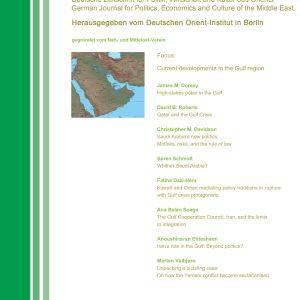Description
International influence has long played a role in the conflict dynamics in Afghanistan. The United States and the Soviet Union famously waged a proxy war in the country, and since the September 11th terrorist attacks the country has featured prominently in the US-led “war on terror.” But while the conflicts in Afghanistan have long been internationalised, the roots of foreign ideological influence on the country’s political dynamics pre-date the outbreak of the jihad and ensuing cycles of insurgency. As a new regime begins to coalesce in Kabul, it is important to keep in mind the role that influence from abroad has played in shaping some of the features of Afghan statehood.
Julian Tucker is a Research Fellow at the Institute for Security and Development Policy in Stockholm, Sweden. He holds an MA in Central Asian Studies from the Humboldt University in Berlin and a BA in Anthropology and Middle Eastern Language from McGill University. His research interests include the post-Soviet development in Central Asia, the political history of Afghanistan, Chinese regional diplomacy and responses to climate change.




Reviews
There are no reviews yet.